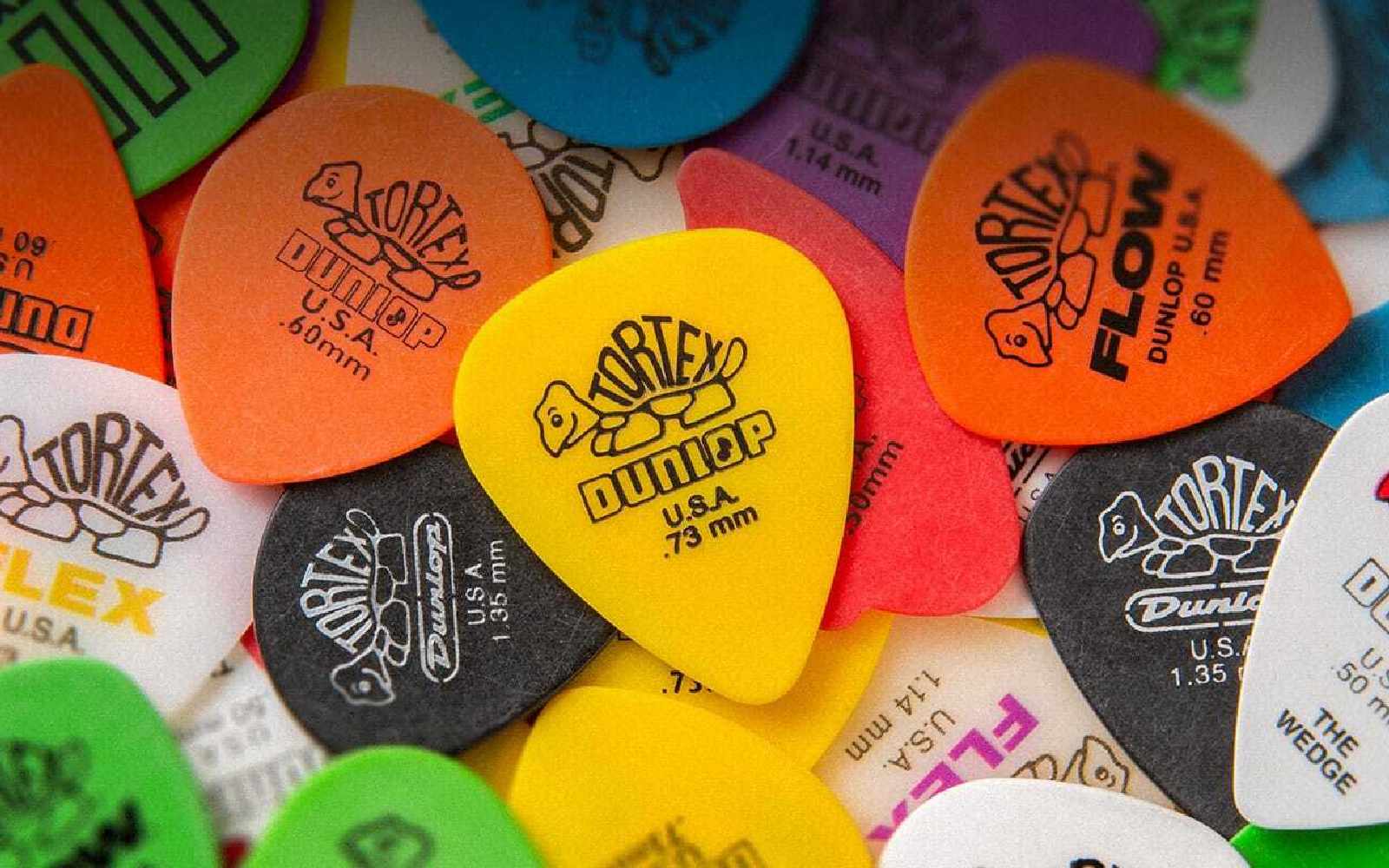Your pursuit of the perfect tone might finally be over; and it starts right at the source.
The type of guitar pick you use is obviously important for both, but acoustic players should pay particular attention to their choice as the actual sound of the material hitting the strings will be amplified, impact the overall sound greatly.
For most people this will change from song to song; do you require a lighter pick that will bend easily on the stings, thus blending the notes together for strumming? Or a heavier pick to accentuate each string easily and give definition for lead playing?
Read up on all the latest features and columns here.
Material
Picks are made from a variety of materials, and each will result in a different tone and haven an effect on the player’s feel. Plastic are certainly the most prevalent in the market, but also available are picks made of metal, bone, horn, stone and wood.
Softer materials typically yield a softer attack and therefore a ‘rounder’ sound. Harder materials on the other hand tend to be better at producing a brighter and more percussive attack.
Soft picks were once made of turtle shell, which was both delicate and expensive to produce, and as the flat-picking style of playing became popular it was only a matter of time before someone came up with an alternative. Herco released the nylon flat pick in the 1960s and was eventually bought out by Dunlop, who still manufacture the style en mass today.
Nylon picks often have a brighter sound with greater flexibility than other types of thick plastics. They allow a flexibility and looseness to your picking pattern, which makes them popular with blues and vintage rock players. The Herco Flex was used widely by rock guitarists such as Jimmy Page, David Gilmour and Gene Simmons.
Speaking generally, the harder and denser the material is, the more accurate and controlled the sound will be, albeit sometimes being so dense that you can bend your strings out of tune—so be weary!
The acetal resin DuPont Delrin was also discovered in the 70s and used in Dunlop’s long running Tortex line and D’Andrea’s Delrix picks. Tortex is popular with harder rock players and experienced a resurgence of popularity in the 90s when its more compressed tone became embraced by the likes of Nirvana, Soundgarden and Pearl Jam.
Thickness
Thinner picks will have a lighter sound, suitable for acoustic strumming, particularly as part of a rock, pop or country sound where the treble is needed to add rhythm and mid-range. When using nylon picks these would tend to fall in the .40-.60mm range. Thinner picks are a great option for bass as they reduce any scratchy, harsh noise, as well as bending the harder you pick. This makes them act somewhat like a compressor: the harder you pick, the more they bend a fold, keeping your picking consistent.
The .60-.80mm range of picks are therefore more suitable to a fuller sound, either for solo performers or rhythm guitar players as they are both stiff enough to accentuate individual notes with high-end bite, and flexible enough to still strum with.
.80mm and above are the preferred size for lead guitar playing as they have less flexibility and lend themselves towards dynamic playing with more picking accuracy.
Shape
Picks come in several variations of the traditional shape, including triangles, rounded edges. Larger sizes with softer tips lend themselves well to strumming, whereas a smaller guitar pick with pointier edges work well for tightly controlled soloing.
Grip
Harder, less flexible plastics tend to be more difficult to keep a grip on as they collide with the guitar strings rather than bend with them. Similarly, thicker picks are also harder to grip but offer more control to your playing. This is a trade off that each player will have to negotiate to find what works best for your style and the tone you are looking for. Some picks come with a high-friction coating to aid grip, while many nylon picks such as Dunlop’s Max Grip have added a coarse surface to their design to aid grip. Dunlop’s range of Tortex picks also arrive coated in a fine powder, not unlike the powdered grip used by gymnasts, weightlifters and rock climbers. Guitar is a sport after all!
Even if after reading this you still feel lost for choice in the world of plectrums, that’s OK, because it’s now time to do your own research. Though, as established, guitar picks have a huge impact on your sound, happily they will be amongst the least expensive of your gear purchases and fit comfortably in your pocket, so trying out several is not prohibitive.
A collection of picks is great to not only try out different materials, but also to have on hand for your next studio session. These subtle changes can help your guitar or bass to settle nicely into a mix, with layers coming and going, all shaped by the sound of your pick.
Keep reading about the huge range, and find your new guitar pick from Dunlop here.

